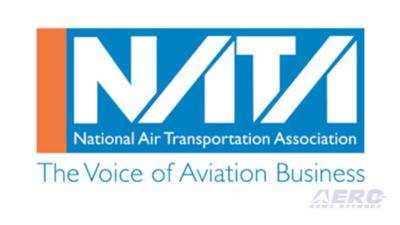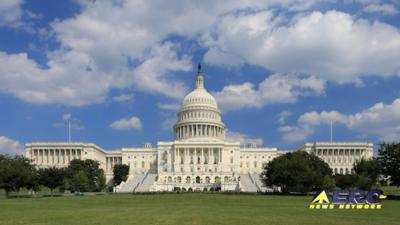Tue, Aug 09, 2022
Chutzpah on the Brink
The National Air Transportation Association (NATA) has issued a statement extolling the U.S. Senate’s passage of the Inflation Reduction Act of 2022. NATA has lauded tax provisions contained in the new legislation which seek—ostensibly—to incentivize production of renewable jet fuels.

NATA states:
“Just as business aviation closes distances, propels innovation, and supports vibrant economic growth throughout our nation, the commercialization and scale-up of sustainable aviation fuel will accelerate our industry’s progress to net-zero carbon emissions. The SAF tax credits included in the Inflation Reduction Act of 2022 are a crucial first step toward meeting the Biden Administration’s SAF Grand Challenge goal of 3 billion gallons of domestically produced SAF by 2030; equally crucial is the removal of regulatory roadblocks that hinder SAF participation in the Environmental Protection Agency’s Renewable Fuel Standard program. NATA applauds the U.S. Senate for taking action to incentivize SAF production, and we encourage Congress to work just as diligently to equip federal agencies, including EPA, with the necessary tools to support SAF production in line with industry demand,” stated NATA President and CEO Timothy Obitts.
NATA has long advocated for creation of a dedicated SAF Blender’s Tax Credit to stimulate investment in the nascent industry and provide economic parity with other renewable fuels. The Association endorsed the Sustainable Skies Act (S. 2263 and H.R. 3440) introduced in 2021, then worked with a comprehensive coalition of industry stakeholders to encourage inclusion of similar provisions in broader spending proposals. The Inflation Reduction Act of 2022 includes two years of such tax credits, valued at $1.25-$1.75 per gallon depending on percentage of lifecycle greenhouse gas emissions compared to fossil-based jet fuel. Beginning in 2025, the legislation creates three years of a Clean Fuel Production Credit with an enhanced value for SAF of up to $1.75 per gallon.

“NATA thanks Senate negotiators for including SAF in the clean energy provisions of the Inflation Reduction Act, and we recognize the tireless leadership of Sustainable Skies Act sponsors on this critical issue. Sustainable aviation fuel represents a lower-carbon, domestically produced energy source that will reduce aviation’s CO2 emissions, extend American global leadership, and support high-paying jobs. Today’s vote is another step toward bridging the gap between federal incentives for energy innovation and the associated costs of establishing a vibrant domestic SAF industry. The business aviation industry has already demonstrated a consistent demand for SAF; now we call on government leaders to adopt sound legislative and regulatory policies to foster consistent production.”
Since its founding in 1940, the National Air Transportation Association (NATA) has represented the interests of aviation businesses before Congress and federal agencies. NATA’s endorsement of the Inflation Reduction Act of 2022—though sincere—is apt to prove difficult to defend when middle and corporate America alike are forced to surrender to the IRS monies they formerly spent on air travel and aircraft acquisition and operation.
More News
He Attempted To Restart The Engine Three Times. On The Third Restart Attempt, He Noticed That Flames Were Coming Out From The Right Wing Near The Fuel Cap Analysis: The pilot repor>[...]
Make Sure You NEVER Miss A New Story From Aero-News Network Do you ever feel like you never see posts from a certain person or page on Facebook or Instagram? Here’s how you c>[...]
From 2009 (YouTube Edition): Leading Air Show Performers Give Their Best Advice for Newcomers On December 6th through December 9th, the Paris Las Vegas Hotel hosted over 1,500 air >[...]
Aero Linx: NASA ASRS ASRS captures confidential reports, analyzes the resulting aviation safety data, and disseminates vital information to the aviation community. The ASRS is an i>[...]
“For our inaugural Pylon Racing Seminar in Roswell, we were thrilled to certify 60 pilots across our six closed-course pylon race classes. Not only did this year’s PRS >[...]
 NTSB Final Report: Rutan Long-EZ
NTSB Final Report: Rutan Long-EZ ANN FAQ: Turn On Post Notifications
ANN FAQ: Turn On Post Notifications Classic Aero-TV: ICAS Perspectives - Advice for New Air Show Performers
Classic Aero-TV: ICAS Perspectives - Advice for New Air Show Performers ANN's Daily Aero-Linx (06.28.25)
ANN's Daily Aero-Linx (06.28.25) Aero-News: Quote of the Day (06.28.25)
Aero-News: Quote of the Day (06.28.25)




